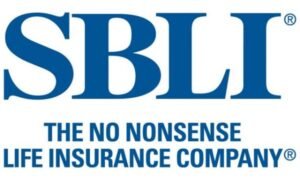
Universal Life Insurance
Universal life insurance is a type of permanent life insurance that offers policyholders flexibility and control over their coverage and premiums. Unlike term life insurance, which provides coverage for a specific period of time, it provides coverage for the life of the policyholder as long as premiums are paid. Here are some key things to know about how universal life insurance works, its pros and cons, and how it compares to other types of life insurance.
How Does Universal Life Insurance Work?
Universal life insurance is a type of permanent life insurance policy that combines a death benefit with a savings component. Policyholders pay premiums that are deposited into a cash value account, which accrues interest over time. This cash value can be used to pay premiums, take out a loan, or supplement retirement income. It offers a degree of flexibility in terms of premium payments and death benefits, as policyholders can adjust both over the life of the policy.
Example of a Universal Life Insurance Policy
Let’s look at an example of how it works.
- Samantha is a 35-year-old professional with a husband and two young children. You decide to purchase a universal life insurance policy with a death benefit of $500,000.
- Samantha’s policy has a cash value component that you can access and withdraw as needed. You also have the flexibility to adjust your premium payments and lifelong death benefit as needed.
- Samantha decides to pay $500 a month for her policy. The insurance company invests that money and receives interest on it. Over time, Samantha’s policy accumulates a cash value of $50,000.
- If Samantha passes away, her beneficiaries will receive the $500,000 death benefit. If you are still alive at age 65 and no longer need the policy, you can return it and receive the cash value as payment. Alternatively, Samantha can also choose to keep the policy and continue to pay the premiums, increasing the cash value and death benefit.
Guaranteed Universal Life Insurance
Guaranteed universal life insurance, or GUL, is a type of insurance policy that offers a guaranteed death benefit as long as the premiums are paid. GUL policies typically have lower premiums than traditional life insurance policies, making them a more affordable option for people who want permanent life insurance.
Which Is True Concerning A Variable Universal Life Policy?
Variable universal life insurance (VUL) is a type of universal life policy that allows policyholders to invest their premiums in a variety of investment options, such as stocks, bonds, and mutual funds. The value of the investment component of the policy may fluctuate based on the performance of the underlying investments.
It is true that a variable Universal Life policy, due to its investment component, can offer greater growth potential and higher returns than a traditional Universal Life policy. However, it is important to note that variable universal life insurance also carries a higher risk because of the investment component. The policyholder assumes the risk of investment loss, which could lead to a decrease in the cash value and death benefit of the policy.
Advantages and Disadvantages of Universal Life Insurance
Advantages:
Flexibility – It offers flexibility in terms of premium payments, death benefits, and cash value growth. This allows policyholders to adjust their coverage and premiums as their needs and financial situation change.
Savings Component – It allows policyholders to build cash value over time, which can be used to supplement retirement income or borrow.
Tax-deferred growth – The cash value component of these insurance policies is tax-deferred growth, meaning policyholders don’t have to pay taxes on income until they withdraw it.
Lifetime Coverage – It provides coverage for the life of the policyholder, as long as the premiums are paid.
Cons:
Cost – It policies can be more expensive than term life insurance policies because they offer permanent coverage and a savings component.
Complexity – It can be complex and difficult to understand, especially for people unfamiliar with life insurance and financial planning.
Risk – The cash value component of it is subject to market risk and the interest rate credited to the cash value account can fluctuate over time.
Surrender Fees – It may incur a surrender fee if policyholders wish to cancel their policy or withdraw cash value within the first few years of the policy.
What Is True About A Variable Universal Life Policy?
Variable universal life insurance is a type of policy that allows policyholders to invest the cash value component of their policy in a variety of investment options. The cash value of the policy and the death benefit may fluctuate based on investment performance. A true statement about a variable universal life insurance policy is that it is subject to market risk and policyholders can lose money if the investments do not perform well.
What Are The Disadvantages Of Universal Life Insurance?
Some of the disadvantages of universal life insurance include high premiums, complexity, and market risks. Unlike term life insurance, which provides coverage for a specific period of time, it offers lifetime coverage, which can make them more expensive. In addition, the cash value component of universal life insurance is subject to market risks and the policy can be complex and difficult to understand.
What Are The 4 Types Of Universal Life Insurance?
There are four main types of universal life insurance: It is important to note that each type of universal life insurance has its own unique features and benefits. It is important to carefully consider your financial goals and risk tolerance before choosing a policy.
- Fixed universal life insurance: This type of policy offers a fixed interest rate on the cash value portion of the policy. The interest rate is usually set by the insurance company and does not fluctuate with changes in market conditions.
- Indexed Universal Life – This type of policy allows the cash value portion of the policy to be invested in various stock indices. The policyholder may receive a percentage of the index return, but may also be subject to a minimum interest guarantee.
- Guaranteed universal life insurance: This type of policy offers a guaranteed death benefit and a guaranteed interest rate on the cash value portion of the policy. Premiums are usually fixed and do not change over time.
- Variable universal life insurance – This type of policy allows the policyholder to invest the cash value portion of the policy in a variety of investment options, such as stocks, bonds, and mutual funds. The cash value and death benefit of the policy may fluctuate based on the performance of the underlying investments.
Is Universal Life Insurance Worth It?
Whether it is worth it depends on your financial situation and individual goals. If you need a permanent life insurance policy and want the flexibility to adjust your premiums and death benefits over time, universal life insurance may be a good option.
However, if you only need life insurance for a certain period of time and want to keep your premiums low, term life insurance may be a better option.
It’s important to work with a financial advisor or insurance agent who can help you understand your options and make an informed decision about the type of life insurance policy that’s right for you.
Can You Cash Out A Universal Life Insurance Policy?
Yes, you can usually collect a universal life insurance policy, but there may be financial consequences. When you cash in a universal life insurance policy, you essentially surrender the policy and receive the cash value accumulated within it. However, the amount of cash you receive may be less than the total amount of premiums you paid on the policy, especially if you cancel the policy in the early years.
In addition, waiving it before age 59 1/2 may result in a tax penalty on the policy proceeds. This is because earnings are deferred and subject to income tax when withdrawn.
If you need to access the cash value of a universal life insurance policy, there may be other options you can consider, such as taking out a policy loan or using the cash value as collateral for a loan. However, these options also have their own risks and benefits, and it’s important to carefully consider all options before making a decision.
Universal Life Insurance vs. Whole Life Insurance

Universal life insurance and whole life insurance are types of permanent life insurance, meaning they provide coverage for the policyholder’s life, as long as the premiums are paid. However, there are some key differences between the two:
- Flexibility – Universal life insurance often offers more flexibility than life insurance. Policyholders can adjust their premium payments and death benefits, and may even have the option to skip premium payments if they have accumulated enough cash value in the policy.
- Cash Value – Both types of policies accumulate cash value over time, but universal life insurance generally offers more flexibility in how cash value is invested and accessed. Policyholders can generally choose from a variety of investment options and access cash value through withdrawals or loans.
- Premiums – Universal life insurance policies generally have lower premiums than lifetime policies, although this can vary based on factors such as the age and health of the policyholder.
- Death benefit – Life insurance generally offers a fixed death benefit, while universal life insurance offers more flexibility in how the death benefit is structured. Policyholders can typically adjust the amount of the death benefit over time, which can be helpful for those who want to increase or decrease their coverage as their needs change.
- Guarantees – Whole life insurance offers more guarantees than universal life insurance, such as a guaranteed death benefit and a guaranteed cash value growth rate. Universal life policies can have more variability in terms of return on investment and cash value growth.
Conclusion
Universal life insurance is a type of permanent life insurance policy that offers a death benefit, a cash value component, and premium payment flexibility and death benefits. While it has a number of benefits, it is also a complex financial product that can be more expensive than other types of life insurance. It is important to carefully consider your individual financial situation and goals before purchasing universal life insurance.








